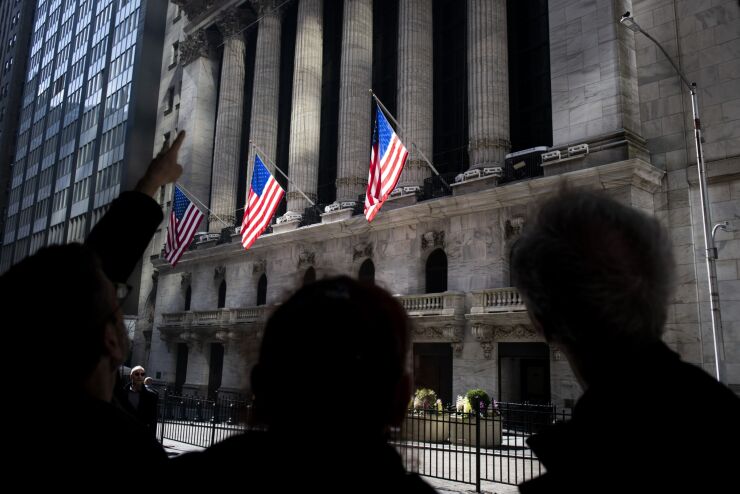Besides COVID-19, another big headline in 2020 may well have been ”Global Financial Markets Worked.”
Amid historic market volatility and uncertainty — triggered by an ongoing pandemic that has claimed hundreds of thousands of lives, various waves of patchwork lockdown and work-from-home orders, and a tumultuous and divisive election — the resilience of the modern financial system, which was retooled after the global financial crisis of 2007-2008, was tested and its integrity was confirmed.

Today’s financial system is “better able to sustain financing to the households and businesses that are the foundation of the real economy,” the international Financial Stability Board opined in a
That’s no small accomplishment. It’s the result of a decade of underappreciated cooperation between four U.S. Presidents, Congress, regulators and market participants. But this is hardly a time for anyone to rest on their laurels or pat themselves on their backs. There are still plenty of challenges and potential changes on the horizon. Here’s what to watch for in 2021:
- A new bout of market volatility: It’s very possible the financial system will be tested anew in 2021. That could happen if — despite spiking COVID infections and stricter lockdowns — squabbling policy makers fail to respond with another round of meaningful fiscal stimulus. Ironically, the imminent availability of a vaccine makes that scenario more likely. That’s the kind of fundamental policy mistake that could cause deeper and longer lasting damage to the economy and increase the strain on financial institutions.
- Continued evolution of the regulatory environment: Whether or not Republicans retain control of the Senate, the new Biden administration, a new SEC Chair and a new Treasury Secretary (Janet Yellen) will have a dramatic impact on the current regulatory environment for the financial services industry. Wealth management firms will be paying close attention to what lies ahead for the Labor Department’s fiduciary rule and the SEC’s Regulation Best Interest. Socially responsible, ESG and impact investing will move closer to center stage with clearer and more permissive rules expected for investors and investment vehicles that prioritize companies’ environmental, social and governance-related practices alongside their financial performance. A financial transaction tax or a bank tax may be floated as a way to pay for stimulative fiscal proposals. And look for any number of proposals to dial back the deregulation initiatives of the Trump administration, particularly when it comes to the amount of capital and liquidity major banks are required to have on their balance sheets.
- Investor access to private markets: 2020 saw the SEC expand its definition of accredited investor, increasing individual access to private investments. This was just one of a handful of recent regulatory actions that prioritize investor choice and expand access to investment opportunities for individuals at a time when the number of publicly traded companies is declining, when equity markets indices are increasingly concentrated and driven by a handful of mega-cap technology stocks, and when interest rates on bonds are at historic lows. One impact? The need for quality advice and education for investors seeking to navigate the illiquid, long term, higher risk private investment space.
- The conundrum of low interest rates: The prolonged low rate environment, sometimes referred to as “financial repression” (because of the challenges it presents for savers looking to generate income in retirement), has had the effect of pushing investors further out on the risk spectrum. Low rates continue to have an enormous impact on the valuation of financial assets, as well as on the profitability of banks and wealth management firms. At the same time, 2020’s enormous flood of monetary and deficit spending fiscal stimulus has elevated inflation risk as one of the major issues confronting financial markets. How investors and institutions adapt to ongoing uncertainty around the future direction of interest rates will have major consequences for financial markets and the financial services industry going forward.
- Importance of high-touch client service: This past year saw exponential growth in the popularity of commission-free online do-it-yourself trading platforms and digital investment advisors. Wealth management firms that continue to provide high-touch service to their clients face a number of competitive pressures, including: fee compression, the commoditization of investment management, rising costs of technology investment and the need to refresh aging advisor ranks. Most importantly, though, they face an existential imperative to continue to evolve their value proposition towards holistic wealth management advice to help their clients improve the chances of achieving their life goals.





